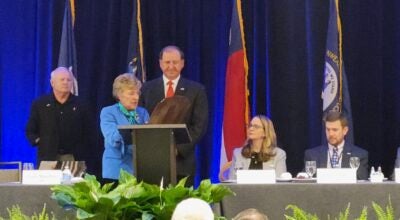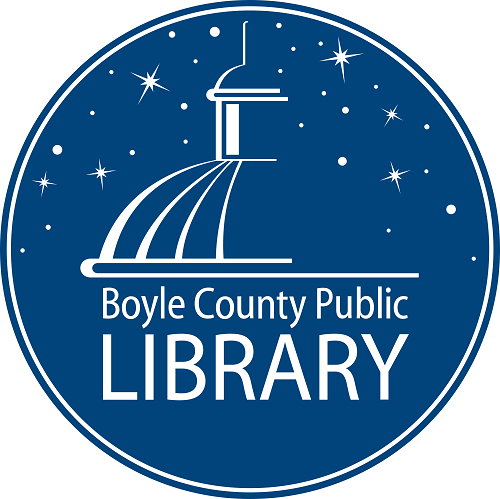Boyle parents want good child care — but can they afford it?
Published 6:02 am Friday, May 11, 2018
A majority of Boyle County parents across racial, social and cultural lines want high-quality early childhood education, according to a recent Centre College survey.
But after the results were presented to a group of early childhood educators and those with a vested interest in child care, several people insisted the biggest problem is that such care is not affordable and financial assistance is difficult to obtain.
Following the formal presentation of the survey results and discussions of how information could be easily shared with parents who don’t know what the local early childcare/education options are available, Susan Weston, who was attending the meeting spoke up.
“There are no circumstances under which this economy will produce child care at the price the customers can afford. The supply curve and the demand curve will never meet. This information is important. It’s useful. There’s a really big piece here that cannot be solved by helping parents find out more about what they can’t afford.”
Centre College professor Dr. Ellen Prusinski, who helped the students form the project, said however, “a lot of us kind of assumed the cost was going to be a huge barrier,” but that’s not the data the survey showed.
“I 100 percent agree. Some families are not able to access the care that they want. I’m not sure it’s as widespread of a problem as you may assume.”
Prusinski said the survey results showed the cost barrier isn’t as high as many people expected.
However, another audience member disagreed. “I think it’s a humongous barrier … They can’t get to a job; they can’t afford daycare so they can’t get a job.”
Prusinski said if another needs assessment is done in this community, income level questions need to be asked.
Alethea Price, chair of the Community Early Childhood Council, said when that group restructured and started up again, it felt a needs assessment should be done. So they partnered with Dr. Ellen Prusinski from Centre College and her students to formulate and administer the survey, which was used to help the organization get feedback on what the community wants in early childhood education in Boyle County.
Centre College students Holly Couch, Stacy Crescencio and Olivia Schadler, along with Prusinski, presented the key findings of their “Early Childhood Education Community Needs Assessment” Thursday morning, during a meeting held at the Cooperative Extension Office.
Prusinski said in discussing the results, surveyors found that what families define as high quality early childhood education “is pretty complex. Sometimes we have an assumption that one size fits all families, all cultures.”
She said the survey showed there were similarities across racial groups and education levels that parents thought a strong focus on social and reading skills were important for young children. But some families think having flexible scheduling was important too.
The survey, “Indicates people do want more than just a place to send their kid,” Prusinski said. “They want something that’s really going to develop that child.”
A powerpoint presentation given by the three Centre students, showed 56.5 percent of Boyle County children were ready to attend kindergarten while 37.1 percent were ready in the Danville Independent School District.
The surveys were available in English and Spanish and took about five minutes for the respondents to complete. They were distributed door-to-door in neighborhoods, at the library, at grocery stores, through early childhood education schools such as HeadStart and Wilderness Trace and within the Danville and Boyle County school systems.
According to the survey presentation, 465 surveys were collected from 259 families with a total of 369 children. This represents about 22.4 percent of the estimated 1,651 children under the age of 5 in Boyle County.
Key findings include:
• Most survey respondents said nothing prevented them from accessing early childhood education for their children. However, several indicated they didn’t know what options were available or who to contact about options. Others said things that prevented them from accessing early childhood education for their child included being on a waiting list for child care, not having reliable transportation, that childcare/education options were too far away; and there were no options available in the respondents’ language (Spanish).
• The vast majority — 84 percent — of respondents with children under age 5 said early childhood education was very important or important; 12.5 percent said it was somewhat important and 1.17 percent each said it was not important or not at all important.
• The majority of survey respondents want to see more high-quality, low-cost options for early childhood education, as well as more full-day programs and supplemental programs such as library programs.
In closing, Prusinski said the project started before A Children’s Place — Boyle County’s largest child care provider — announced it was closing. She thinks that development changed the tone of survey answers.
Prusinski said when the survey was developed, they didn’t ask income questions “because it didn’t seem that relevant. The closure announcement sort of brought some questions about cost up.”
Prusinski suggested the community could continue the survey so more responses could be gathered.
She also suggested a similar survey could be given to child care providers, to see if the families’ and the providers’ needs were in alignment.
Prusinski added it would be interesting to survey other stakeholders and major employers in the community to see what they think their roles are in early childhood education or child care.






